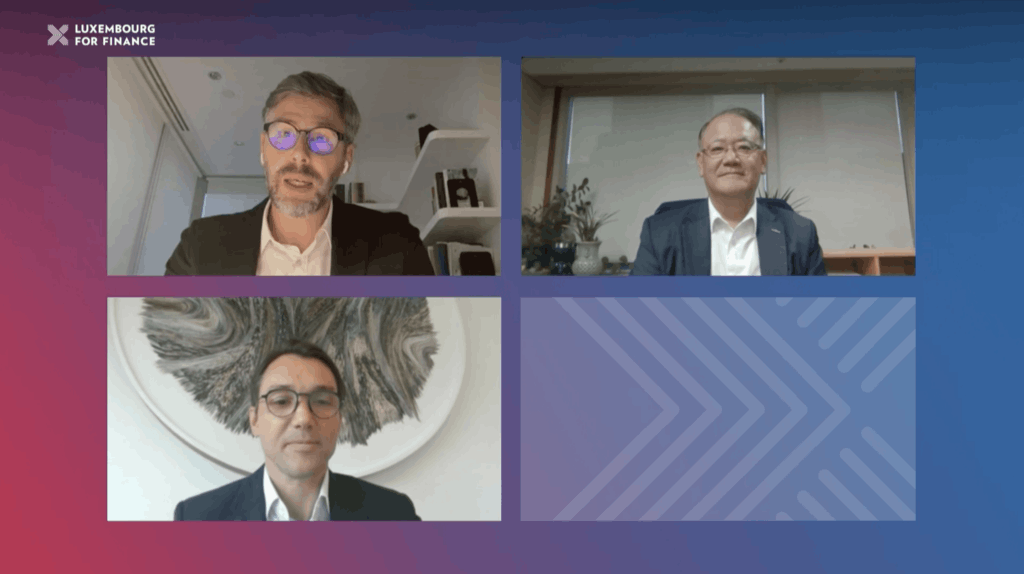Both the Reserved Alternative Investment Fund (RAIF) and the Special Limited Partnership (SLP) are favoured by Korean investors as a way of opening exposure to alternative assets in Europe, Alessandro Silvestro of asset manager Lemanik told delegates, while the Undertakings for the Collective Investment in Transferable Securities (UCITS) already enjoys huge popularity.
“Private debt and private equity are getting traction. The Korean insurance company typically uses fixed income assets as the backbone of their investment, however, they are increasingly turning to private credit private debt to enhance their portfolio return,” Silvestro said.
RAIF, SLP and UCITS
A RAIF qualifies as an alternative investment fund (although it can invest in many types of assets), and if the fund manager is domiciled in the EU it also benefits from a European fund passport. Meanwhile, the SLP is a flexible structure that can invest in special purpose vehicles as well as alternative assets. Both structures take around six weeks to launch.
For many, the SLP is simpler as it requires no lawyer or administrator, whereas the RAIF demands a depositary bank, administrator, transfer agent, AIFM, auditors and a lawyer. However, unlike the SLP, the RAIF can use an umbrella structure, noted Silvestro.
“Korean investors are launching tailor-made SLPs that become feeders of Luxembourg alternative investment funds. So the SLP can be used as a structuring vehicle for AIF,” he said.
On the other side of the coin, Korean private equity investors are also using these structures as a means of tapping into European investors and expanding their own investor base. “[In this way,] they are emulating the big US private equity firms - KKR, Blackrock, Apollo,” he said.
Outside of alternative investments, UCITS is already flying off the shelves in South Korea, where, according to Silvestro, 500 UCITS funds are already registered for distribution.
“If you compare [Luxembourg] UCITS to other global brands, Louis Vuitton sells in 50 countries, Versace in 60…UCITS sells in 80. Only Macdonalds with 118 countries overtakes UCITS,” said Silvestro.
Plans to double size of national Korean pension fund
The opportunity for Korea to grow its overseas investments is huge. According to Hong-Rae Cho of investment manager Korea Investment Management, Korea’s domestic market is a ‘blue ocean’ in size and also in terms of its overseas investment allocation opportunity compared to the saturated markets of Japan.
“The National Pension Service of Korea, already third or fourth largest around the world, is $725bn USD assets, to be doubled by mid 2040s. Overseas investment of the pension fund at 45%. Ten years ago that number was 20% and plan for that to be 55% in 2025 -- only three years away. Another example is the growth of our retirement pension market -- the current size is $270bn, and the hottest defined benefit funds already invest 60% of assets overseas,” Cho said.
Given the appetite for foreign investment, Cho recommends a joint venture between South Korean and Luxembourg companies to sell UCITs product to Korea’s domestic market and Korea’s products to both the European market, and the Asian market.
Seoungho Jin of the Korea Investment Corporation pointed out that “the Korean government make it easy for global financial institutions to enter country and succeed in doing business.”
The comments come off the back of a South Korean charm offensive from President Yoon Suk-yeol, who came into office in May 2022. As well as building relations with other countries, there is a strong drive from the government towards deregulation, the delegates said.
“The size of the investment tickets we witness coming from Korea, the quality of the Luxembourg structure, and new Korean government we believe we have all the tools and elements to make the bridge stronger than before,” said Xavier le Sorne of law firm Elvinger Hoss Prussen.
